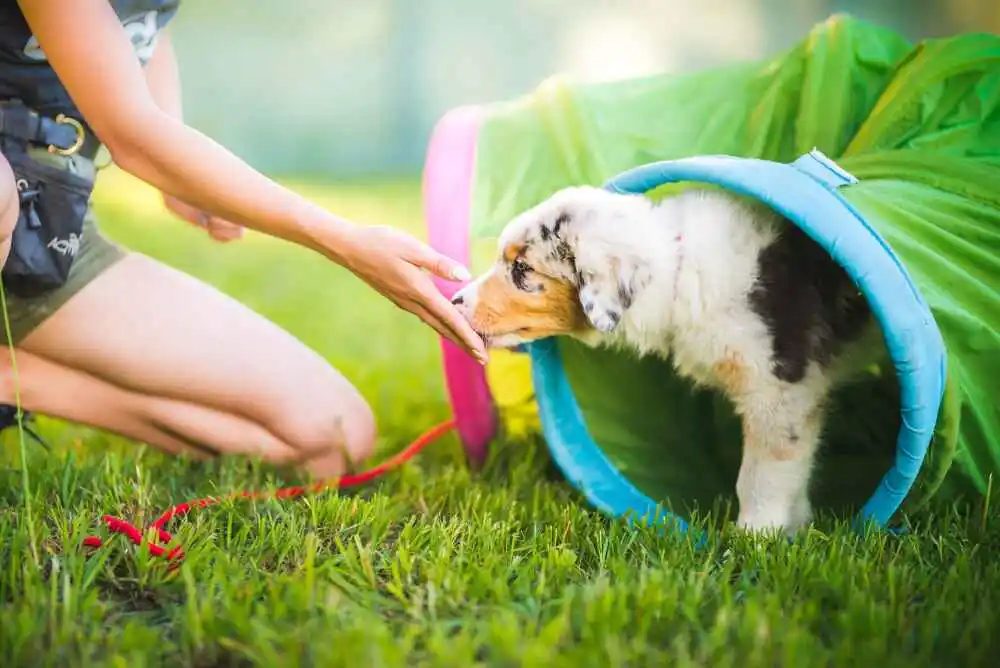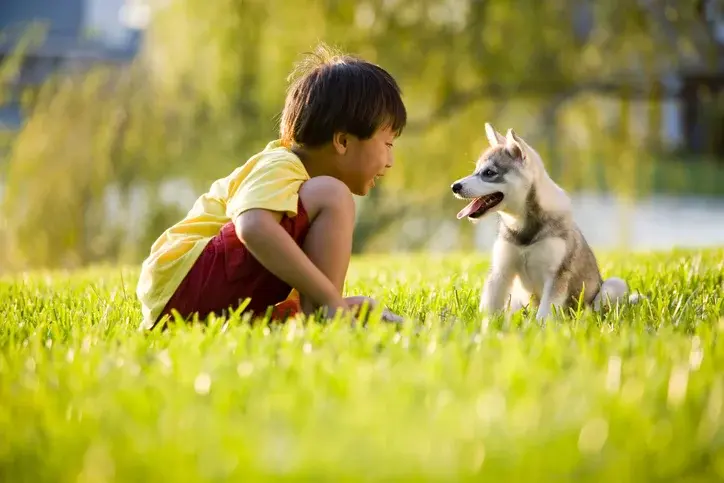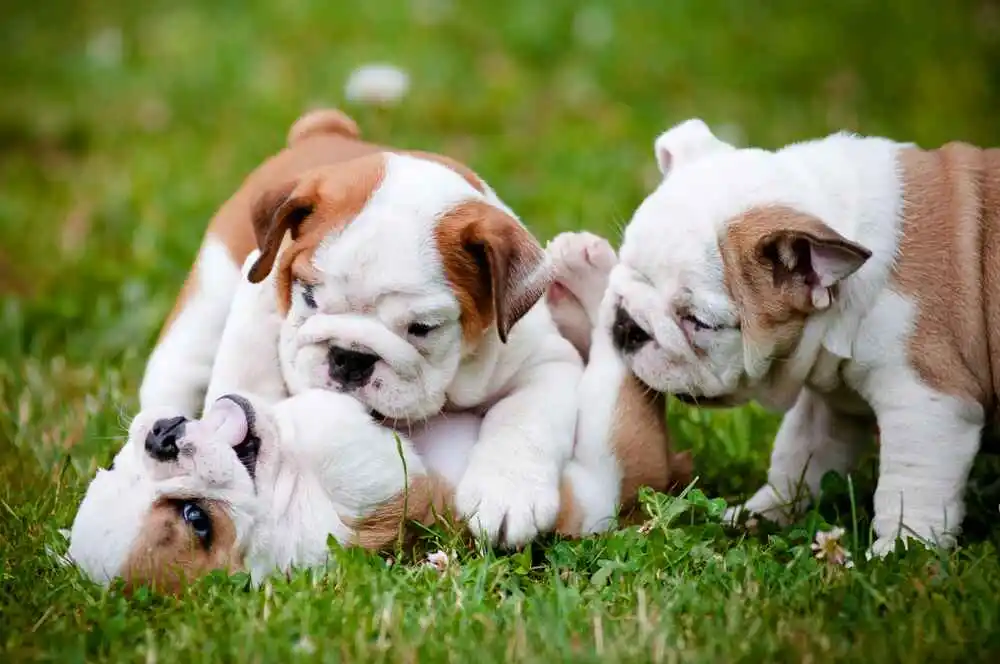
Socialization for your Puppy at an early stage is the best choice for enhancing its capacity to develop into a cheerful and self-assured dog. One of the critical things for your puppy’s socialization is meeting other dogs and people, as friends are crucial to their well-being and the way they behave. Using various strategies such as positive reinforcement but never fearing to introduce your puppy to new situations is the best way to shape a friendly, extrovert pup. This socialization at the beginning lays the foundation for how one can get along with the rest of the world for their whole life; therefore, this can avert any issues with fear, aggression, or insecurity. Giving your dog the privilege to experience an assortment of given moments from the commencement looks like a recipe for a playful, easygoing, and well-behaved dog at large.
Importance of Socialization Your Puppy
The socialization of puppies is no doubt a key stage of their early years and it is when you will lay the foundation of how they react in future social situations. By using socializing one of the puppies would be learning to interact safely with dogs and humans in their surroundings. To secure this objective, not only does this process prevent undesirable traits like fears, aggressions, and anxieties, but ultimately it produces dogs that have become fully-fledged adult dogs. Attachment to the human family early gives the puppy some insight into people, animals, environments, and situations to control a scene and feel calm in an unfamiliar situation. Therefore, it can be argued that dog puppies that have been socialized are likely to be calm, nice, and able to adapt easily. As a result, the coexistence between pets and pet owners at the family level will improve, as well as the interaction of the dog with society in general.
When To Start Socializing Your Puppy
The best time to start play-grouping and Socialization for your Puppy your puppy is between 3 and 14 weeks old. During this stage of maturation called the socialization window, puppies admit and embrace altogether new experiences with the most ease. Conversely, it takes care too that the interaction is safe and pleasant to avoid the risk of the spaces becoming connected with negative emotions. In case you do, you can comfort yourself that socialization at the puppy age is a guideline, but not a conviction. Nevertheless, it may take longer for us to deal with any fears that are triggered or grow due to the lack of information and being cut off from the ‘real world.
How To Socialize Your Puppy Step-by-Step Introduction to New Environments
To socialize your puppy one should have him or her get to know more stuff, new places, and people in a nonthreatening and controlled manner.
Here are some ways to socialize your puppy:
- Introduce to Various People: Let your puppy meet different people, like men, women, kids, and old adults, who can safely interact with them to build up a familiarity with various looks, voices, and actions.
- Meet Other Animals: Instruct your dog to gently interact with other dogs and pets safely. This can be done with hotels, restaurants, and shops that tie their products or services to a professional sports team. Puppy classes indeed can be a good place to socialize with other well-inoculated dogs during a controlled session.
- Explore New Environments: Take your puppy with you to different places such as dog parks, and pet stores, and walk around your neighborhood to feel sounds, sights, and smells.
- Positive Experiences: Reach for every new day with a smile. Give food, and encouragement, and engage in play to associate new encounters with pleasure and amusement. The foremost concern is the fact that diversity brings distinct contributions, outlooks, and perspectives.
- Desensitize to Handling: Touch your finger puppy through paws, and ears, and open their mouth. These sessions help puppy owners reduce their anxiety regarding visits to the vet and grooming.
- Noise Conditioning: Proving your puppy with auditory variety in a measured and step-by-step manner could prevent fearfulness. Household colors, traffic sounds, and other common noises, which they might also find in their daily experience, also fall into the category.
Friendly Tips for Socialization for your Puppy and Building Strong Friendships
Socialization is far from the only way you can help the puppy develop friendship ties, particularly by using behavior-based methods to make him or her ‘the puppy of choice.
Here are a few additional tips:
- Provide plenty of positive reinforcement: When your puppy behaves in a friendly manner, like being gentle with new friends or playing calmly with other dogs, give it praise and a reward. It will reinforce their positive behavior while maintaining a level of relationship continuity with peers.
- Encourage playtime: During playing, puppies acquire a plethora of social skills, which enables them to engage more maturely with others. For puppies, you should consider providing them with social activities as an input, in which the play gets observed by the guardian as an output.
- Be an example: You as a puppy owner also being a part of your puppy’s socialization process where you can teach your puppy to be nice and disciplined with his fellow peers as well. Be sure you have the right behavior when it’s time to get acquainted with new individuals or animals, like a puppy, with younger children, or during interactions with strangers.
- Take note of body language: You should be careful to read your puppy’s body language when he meets other animals or people. It could just be that they are not feeling comfortable or are even anxious about those activities which may suggest that they need more socialization in that particular space. Be patient and be sure you are making the effort to praise and reinforce them over these adventures of learning.
- Seek professional help: In case you notice any troubles with your puppy’s socialization or strange behavior, avoid taking it lightly and ask for a professional trainer’s help. This is the role they can play in creating a happy environment for a good social life of their puppy helping the dog to establish strong connections and healthy manners.

Things To Avoid For Better Socialization for your Puppy
Social puppy training is an important element of the process but it is important to get that balance right. Give them new experiences little by little so as not to scare them out and this will help with the fear Stay relevant and come off as sincere, not ubiquitous.
Keep your puppy away from the fearful situations but keep your fingers crossed. If he is nervous but seems to be curious enough to explore the situation, don’t force him. This may develop negative stereotypes about such products and intervals of such use. Opposed to this, emblematic approval can be engaged to build their self-confidence.
By the way, pet parents are required to check on their puppy’s health, and desist from letting them visit areas that could transmit diseases, such as dog parks before they are fully vaccinated. Note that socialization occurs in a window in time, socialization can be happening all the time albeit for earlier ages would be better.
Remove common mistakes to have a good socialization process. Application of this strategy not only improves their overall health but also contributes towards the development of dog owners into responsible and well-rounded adult humans who are sociable, happy, and balanced.
Long-Term Benefits of Proper Socialization
There is no doubt that socialization during a puppy’s early life is an important factor in their future well-being and behavior. Gives the beginning of an unbroken line of favorable dealings with the dog, which can probably make a decisive contribution to the dog’s quality of life. Next up, I will dig into the innumerable advantages of mental health and wellness.
1. Development of a balanced character that has strong and weak sides.
2. Disrupted behavioral problems such as excessive barking, chewing, and aggression.
3. Less anxious and nervous about training in a new setting, therefore easier to train.
4. Better response to environmental factors variations like the shifting house or accepting new family members to join.
5. Less stress in new surroundings causes more joyful and also a healthier life.
6. Active and outgoing person, who enjoys physical activities, traveling, etc.
7. A deeper bond between the owner and dog helps the two to become closer.
8. Contribution to the mental health of the dog diminishing anxiety, depression, and stress.
9. Due to socialization, they are more likely to cause no harm in public places therefore making public areas safer.
Conclusion
Socialization for your puppy goes on to be one of the important factors to be in happy and the pet should also be well-behaved. By providing them opportunities to take part in various positive activities and creating safe situations as they grow familiar with new experiences, people, and animals, puppies become confident and friendly adult dogs. Be sure to socialize the puppy the right way right from the beginning, be patient, and always keep him safe, and never forget, the puppy’s health and well-being will always be your highest priority. Proper socialization will give your puppy ways to make good friends and advance their lives in many environments during those valuable years that you will share. Hence, start planning out your puppy socialization program as one of the fundamental parts of their development and growth. While the result is the same, that is a happy dog, the reward we receive from seeing the content dog is priceless. Happy puppy parenting!
FAQS
Q1: At what age should I start socializing my puppy?
Puppies are at their most amenable especially to socialization activities when they are not much more than 3 or 14 weeks old. This period is when they are vulnerable to many diseases; hence it is good to start socializing them immediately after the initial vaccination to prevent the possibility of them contracting other diseases from unkempt places such as the street.
Q2: Is it too late to socialize with my adult dog?
The primary focus should be socialization during the early years, but remember that it is never a bad time to brush up on social skills. Adult dogs, as well, will still be able to get used to the presence of unfamiliar things, but they may require, being the case, more patience and gradual exposure.
Q3: How can I socialize my puppy during the social distancing measures?
The socialization process of your puppy can be simplified as simply letting them chill out at home to get used to different sounds and jointly carry out virtual meetups with other dogs, at the same time, it also means taking the dog on walks to new routes where they can experience different environments safely.
Q4: What should I do if my puppy seems scared during socialization?
If your puppy is afraid, then you must not compel, him to face the situation. Moreover, don’t put a student through a stressful situation by the removal of headphones straightaway. Be patient and apply a gradual approach later. Never miss the opportunity to reflect on positive reinforcement if you want to instill confidence.
Read More: Can Any Dog Swim? A Beginner’s Guide







